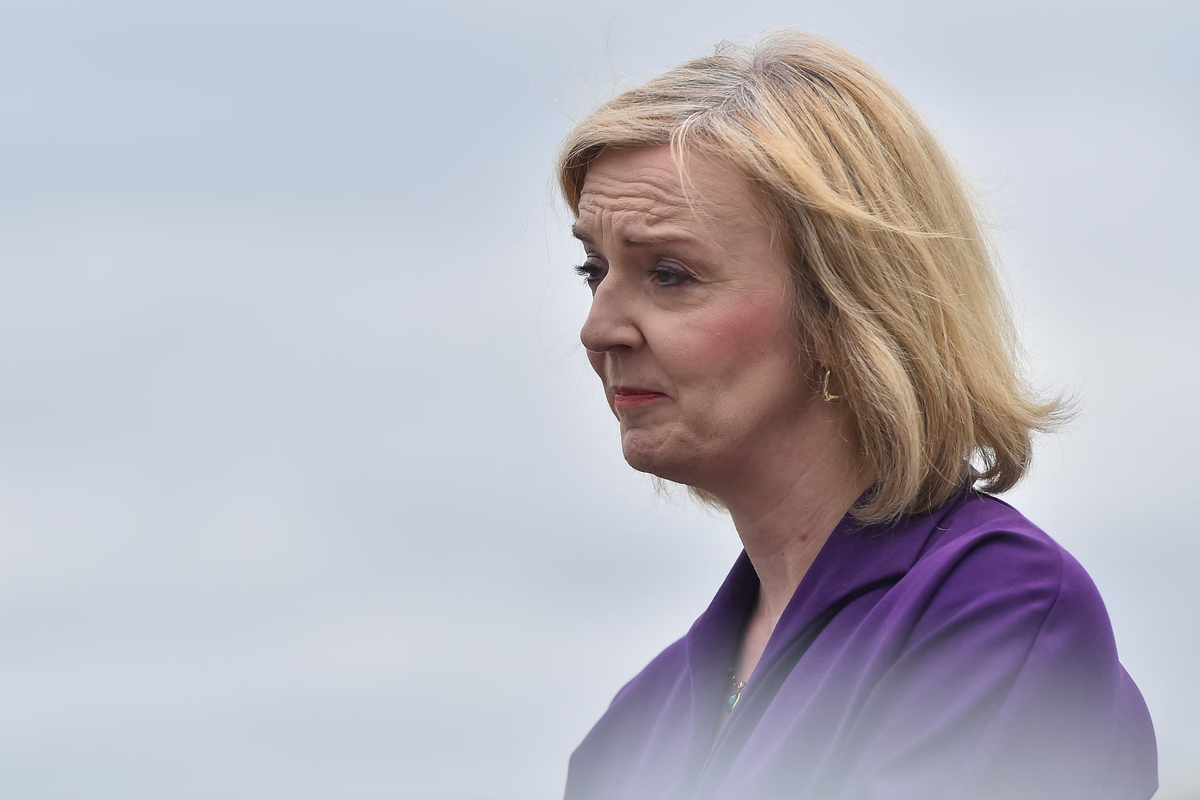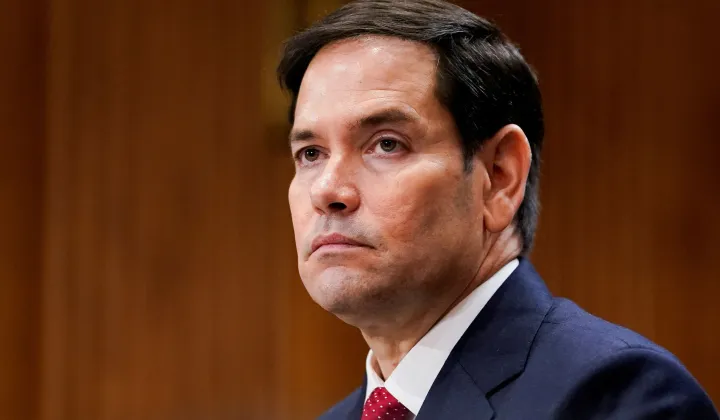Trump Has Not Been Proven Right About Pretty Much Everything
The Telegraph’s Trump apologia by Liz Truss trades facts for fantasy and calls it insight.

There’s a kind of desperation that clings to propaganda dressed as commentary—an ache to not only rewrite the record but to salt the earth where truth once stood. The Telegraph’s April 14 op-ed, “Trump has been proven right about pretty much everything,” by former UK Prime Minister Liz Truss, is one such piece.
It doesn’t just attempt to rehabilitate the image of a man whose presidency cratered American credibility at home and abroad—it tries to invert reality altogether. What unfolds is less an argument than an exorcism: a petulant scream from a failed prime minister who sees Trump as a blueprint for redemption.
“The American economist Thomas Sowell once wrote: ‘People will forgive you for being wrong, but they will never forgive you for being right – especially if events prove you right while proving them wrong.’ So it seems with President Trump.”
This opening frames Trump as a prophet maligned by lesser minds—a rhetorical sleight-of-hand borrowed from demagogues throughout history. But the reality is not that Trump was right and vilified for it. It’s that he was consistently wrong in ways that caused measurable harm, and the consequences were too public, too obvious, and too deadly to spin away. Invoking Sowell serves only to sanctify Trumpism as martyrdom, sidestepping the fact that the bulk of Trump’s “bold predictions” were either incoherent, contradicted by his own administration, or catastrophically mismanaged in practice.
“It turns out that the Paris Climate Accords led to unilateral economic disarmament in the West… that China has proved to be a malevolent force… that the overly draconian Covid lockdowns were a mistake…”
This laundry list of grievances is smuggled in as settled fact. But each one is a contested and complex issue flattened into a bumper sticker. The Paris Agreement didn’t hobble the West—it established voluntary, nationally determined targets, which the U.S. under Biden has exceeded without economic collapse. China’s economic rise wasn’t a Trump revelation—it was a decades-long trend understood by every economist with a pulse. And the characterization of lockdowns as “draconian mistakes” ignores the counterfactual: without them, death tolls would have skyrocketed, hospitals overwhelmed, and economies plunged into deeper recessions, as shown in multiple peer-reviewed studies.
“The ‘swamp’ or ‘deep state’ – call it what you will – is a real threat and was subverting democracy.”
This isn’t journalism. It’s QAnon cosplay with a posh accent. The “deep state” is a paranoid hallucination recycled from Cold War fiction and weaponized to undermine civil service independence. The moment a columnist stops describing specific policy disagreements and starts accusing unnamed bureaucrats of subverting democracy, they are no longer reporting or analyzing. They’re constructing an enemy too nebulous to verify and too useful to retire.
“Trump is right that towns and cities have been hollowed out, on both sides of the Atlantic.”
There’s a kernel of truth here—industrial decline is real. But to credit Trump for diagnosing economic dislocation is like crediting a storm for noticing the roof leaks. Trump didn’t invent deindustrialization, nor did he reverse it. The American towns he claimed to champion continued to bleed jobs under his administration, even before COVID. Meanwhile, his tax cuts overwhelmingly benefited corporations and the wealthy. The claim that he “saw it coming” ignores the fact that his solutions—trade wars, deregulation, performative nationalism—only deepened the problems.
“The entire Western establishment can’t bear to admit how wrong they have got it.”
This is the article’s emotional core: ressentiment masquerading as revelation. It reframes elite failure not as systemic drift but as personal betrayal, conveniently omitting the author’s own time in power. Truss’s own brief premiership ended in economic disaster. The idea that she and Trump share a uniquely clear-eyed view of the world is an act of self-absolution wrapped in delusion.
“I was blamed for failures that were actually the Bank of England’s… it has since admitted that two-thirds of the market movement was its responsibility.”
This paragraph is a full-on pivot into Truss’s personal mythmaking. She casts herself as a scapegoated reformer, undone by bureaucratic sabotage. But her “Mini-Budget” was roundly condemned not because it was disruptive, but because it was economically incoherent and fiscally reckless. The markets didn’t collapse out of spite—they reacted to a sudden, uncosted shift in policy that spooked investors. Blaming the Bank of England for the fallout is like blaming the thermometer for the fever.
“The only viable strategy is the one that Trump is employing of ‘flooding the zone.’”
The mask slips. What Truss praises here is not reform but chaos as strategy. “Flooding the zone”—a term coined by Steve Bannon—isn’t about informing the public or achieving consensus. It’s about overwhelming the system with so much noise that truth itself becomes negotiable. This is not a defense of Trump’s accuracy; it’s a celebration of his ability to wreck norms faster than anyone can fact-check them.
“Trump is right that China has cheated in international trade… His shock tactics have brought countries to the table.”
Even if one grants the premise that Trump’s trade belligerence pressured China, the claim ignores the cost: volatile markets, retaliatory tariffs, and a loss of American credibility in global trade institutions. Shock tactics don’t build coalitions—they fracture them. Trump’s America First agenda alienated allies and emboldened autocrats. Countries came to the table not out of newfound respect, but to manage a volatile partner they no longer trusted.
“We can get fracking, cut regulations, abolish the Human Rights Act and get on with deporting illegal immigrants.”
The proposed policy slate is not a coherent program—it’s a wish list of reactionary impulses. Strip protections. Drill faster. Deport more. It’s political theatre masquerading as strategy, and none of it actually addresses the root causes of economic malaise or social division. It’s governance by grievance.
“So rather than placing all their ire on Donald Trump, those who have run this country into the ground for the past 40 years need to look closer to home.”
This final flourish tries to reassign blame to everyone else—everyone who governed, everyone who compromised, everyone who believed in international cooperation or environmental stewardship or incremental reform. But it’s a magician’s distraction.
The question isn’t whether the status quo has failed—many agree it has. The question is whether Trumpism offers an alternative or an accelerant. Truss argues the former. History, evidence, and lived reality suggest the latter.
This ill conceived op-ed doesn’t just misrepresent facts—it attempts to erase them. It rebrands failed policies as misunderstood genius and dresses authoritarian chaos as brave reform.
The decision to publish this piece, especially under a headline as sweeping and fact-free as “Trump has been proven right about pretty much everything,” is not editorial boldness—it is editorial malpractice.
Now, more than ever, the world needs an independent press that is unencumbered by commercial conflicts and undue influence.
By taking out an optional founding membership, you can help us build a free, accessible, independent news platform firewalled from corporate interests.
Support The Index
